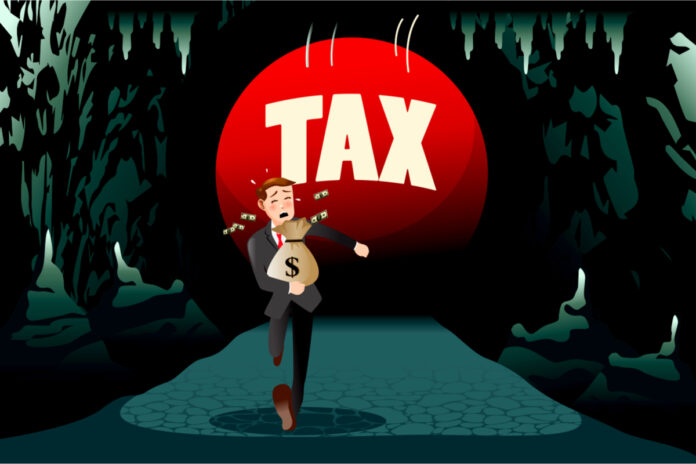There’s no quicker way to get a rise out of a cannabis business owner than to mention Section 280E, the dreaded Internal Revenue Service tax code prohibiting standard business deductions by companies that traffic in federally illegal drugs—including licensed and heavily taxed medical and adult-use cannabis operations.
Section 280E is far and away the most significant factor holding back cannabis from becoming a bona-fide booming industry in the United States, and it has defied numerous attempts to overturn what most in the industry condemn as overly punitive and anti-business.
Now that cannabis operations have been deemed essential during the pandemic, optimism weed will be legalized or de-scheduled is growing. In December, the House of Representatives passed the Marijuana Opportunity Reinvestment and Expungement (MORE) Act, which would remove cannabis from the list of federally controlled substances. Vice President Kamala Harris and other high-level Democrats have voiced support for federal legalization.
But with a pandemic still in full swing, unemployment rates sky-high, and state coffers depleted, will politicians be motivated to act on 280E or give cannabis companies any other form of tax relief in 2021?
Old Maid
Even for large companies that buy in high volume and squeeze margins at every point in the supply chain, turning a profit at the retail level has been an elusive goal for most retail operators across the U.S. The IRS does allow a narrow path for tax relief in a limited cost of goods sold (COGS) deduction under 280E, and this has allowed vertically integrated companies to get creative and inflate production costs as a means of reducing their overall tax burden. But strategies like this represent a drop in the bucket compared to the common deductions all other businesses enjoy, such as rent, salaries, insurance, legal fees, and travel expenses.
Richard Batenburg has done a little bit of everything in the cannabis industry after Colorado pioneered recreational use in 2014. He currently serves as chairman of the board at Clear Cannabis Inc. One end of the business he has no appetite for anymore is retail, which he said has been hit hardest by 280E. “It’s too much aggravation in that segment, and they’re really getting hammered,” he said. “If you’re running a chain of stores and are able to break even after taxes, that’s great. The minute 280E is repealed, you’ll have a 35-percent-margin business that next day without changing a damn thing.”
One might think eliminating an onerous, unfair tax provision would be a more popular cause, given the action quickly and dramatically would stimulate growth and allow companies large and small to expand operations and hire more employees. Unfortunately, both state and federal politicians are likely to adopt a more cynical view, at least until the economy recovers. Cannabis taxes buffer budget shortfalls.
The single biggest factors motivating state legislatures to legalize cannabis, whether medical or recreational, is the tax revenue that feeds into state coffers and the jobs the industry creates. In California alone, the state has collected nearly $2 billion in tax revenue since 2018, and Colorado recently passed the $1 billion mark. New Frontier Data forecasts the industry could produce nearly $130 billion in additional tax revenues and more than 1 million jobs were cannabis made federally legal.
At a time when the economy is in its worst shape in decades, with staggering unemployment and any number of industries on the edge, it might seem logical to stimulate the cannabis industry, which has great potential to grow across the U.S. and internationally. The only problem with that proposition is state budgets are bleeding from coast to coast and the national deficit is hitting unprecedented peaks, so it’s unlikely many politicians would support de-scheduling or legalizing until the pandemic has passed.
“Colorado can’t live without that tax revenue, and the federal government has been printing $100 bills like they’re going out of style for stimulus packages,” said Batenburg. “How are they going to replace that revenue? The economy is essentially a giant game of Old Maid, so it’s got to come from somewhere. I mean, they’re accustomed to spending [the money], and they haven’t been taking it and putting it under the mattress.”
I’ll see you in court
If 280E weren’t bad enough by itself, one of its ramifications is very few companies in the industry can afford the sky-high rates banks charge for accounts insured by the Federal Deposit Insurance Corporation. Of course, the reason banks must charge such high rates—as much as $5,000 to $10,000 a month for an insured account—is documenting their clients’ sale of illegal narcotics requires additional oversight and paperwork.
With among the highest tax rates, California has been ground zero for the fight against 280E. In 2010, Steve DeAngelo and Oakland’s Harborside dispensary, which DeAngelo then owned, challenged 280E in court; the fight continues to this day. In May 2020, Greenspoon Marder attorney James Mann filed a new appeal at the U.S. Court of Appeals for the Ninth Circuit in San Francisco. The argument is twofold: 280E has been applied in an unconstitutional manner that runs contrary to the 16th Amendment, and the IRS and the U.S. Tax Court have been misinterpreting how COGS should be calculated by cannabis companies.
While the Harborside case shines a bright light on the injustice of 280E, the courts are unlikely to lend a helping hand—which brings us back to Congress and our duly elected representatives. Why haven’t the international and multistate companies heavily investing in the U.S. cannabis industry launched a meaningful lobbying campaign?
The clock is ticking, and if companies continue to be taxed at exorbitant rates, state and federal officials run the risk of kneecapping an industry that is poised for growth and could become one of the brightest spots in the U.S. economic recovery.








